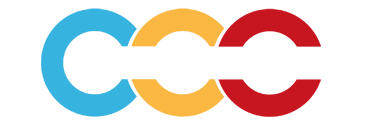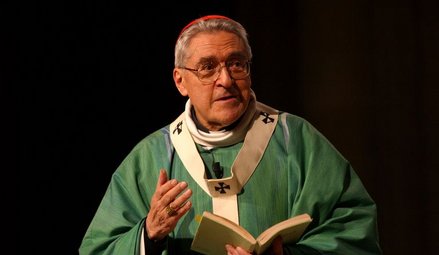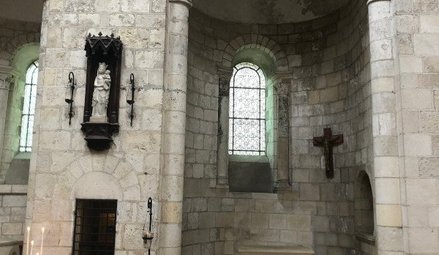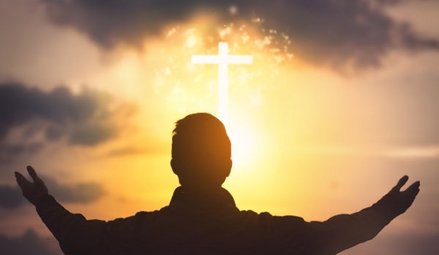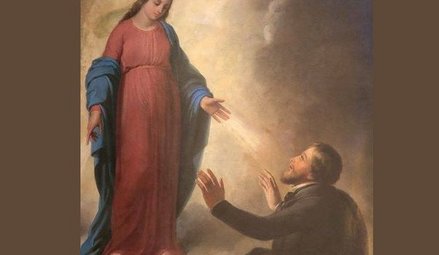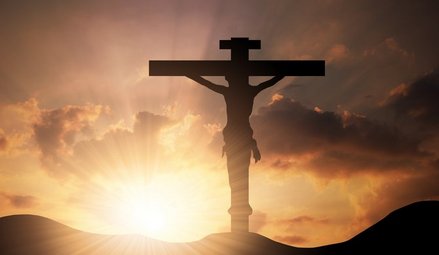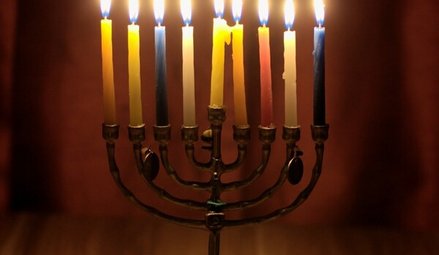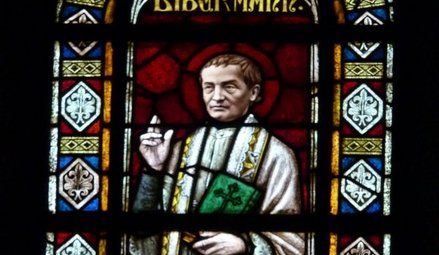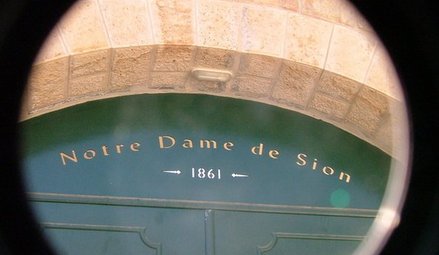- By theme
- Jesus
- The many proofs of Christ’s resurrection
- Saint Thomas Aquinas: God gave all the divine proofs we needed to believe
- The surpassing power of Christ's word
- Lewis’s trilemma: a proof of Jesus’s divinity
- God saves: the power of the holy name of Jesus
- Jesus spoke and acted as God's equal
- Jesus' divinity is actually implied in the Koran
- Jesus came at the perfect time of history
- Rabbinical sources testify to Jesus' miracles
- Mary
- The Church
- The Bible
- An enduring prophecy and a series of miraculous events preventing the reconstruction of the Temple
- The authors of the Gospels were either eyewitnesses or close contacts of those eyewitnesses
- Onomastics support the historical reliability of the Gospels
- The New Testament was not altered
- The New Testament is the best-attested manuscript of Antiquity
- The Gospels were written too early after the facts to be legends
- Archaeological finds confirm the reliability of the New Testament
- The criterion of embarrassment proves that the Gospels tell the truth
- The dissimilarity criterion strengthens the case for the historical reliability of the Gospels
- 84 details in Acts verified by historical and archaeological sources
- The unique prophecies that announced the Messiah
- The time of the coming of the Messiah was accurately prophesied
- The prophet Isaiah's ultra accurate description of the Messiah's sufferings
- Daniel's "Son of Man" is a portrait of Christ
- The Apostles
- Saint Peter, prince of the apostles
- Saint John the Apostle: an Evangelist and Theologian who deserves to be better known (d. 100)
- Saint Matthew, apostle, evangelist and martyr (d. 61)
- James the Just, “brother” of the Lord, apostle and martyr (d. 62 AD)
- Saint Matthias replaces Judas as an apostle (d. 63)
- The martyrs
- The protomartyr Saint Stephen (d. 31)
- Polycarp, bishop of Smyrna, disciple of John and martyr (d. 155)
- Saint Blandina and the Martyrs of Lyon: the fortitude of faith (177 AD)
- Saint Agatha stops a volcano from destroying the city of Catania (d. 251)
- Saint Lucy of Syracuse, virgin and martyr for Christ (d. 304)
- Thomas More: “The king’s good servant, but God’s first”
- The martyrdom of Paul Miki and his companions (d. 1597)
- The martyrs of Angers and Avrillé (1794)
- The Martyrs of Compiègne (1794)
- The Vietnamese martyrs Father Andrew Dung-Lac and his 116 companions (17th-19th centuries)
- He braved torture to atone for his apostasy (d. 1818)
- Blaise Marmoiton: the epic journey of a missionary to New Caledonia (d. 1847)
- José Luis Sanchez del Rio, martyred at age 14 for Christ the King (d. 1928)
- Saint Maximilian Kolbe, Knight of the Immaculate (d. 1941)
- The monks
- The Desert Fathers (3rd century)
- Saint Anthony of the Desert, a father of monasticism (d. 356)
- Saint Benedict, father of Western monasticism (d. 550)
- Saint Bruno the Carthusian (d.1101): the miracle of a hidden life
- Blessed Angelo Agostini Mazzinghi: the Carmelite with flowers pouring from his mouth (d. 1438)
- Monk Abel of Valaam's accurate prophecies about Russia (d. 1841)
- The more than 33,000 miracles of Saint Charbel Maklouf (d. 1898)
- Saint Pio of Pietrelcina (d. 1968): How God worked wonders through "a poor brother who prays"
- The surprising death of Father Emmanuel de Floris (d. 1992)
- The prophecies of Saint Paisios of Mount Athos (d. 1994)
- The saints
- Saints Anne and Joachim, parents of the Virgin Mary (19 BC)
- Saint Nazarius, apostle and martyr (d. 68 or 70)
- Ignatius of Antioch: successor of the apostles and witness to the Gospel (d. 117)
- Saint Gregory the Miracle-Worker (d. 270)
- Saint Martin of Tours: patron saint of France, father of monasticism in Gaul, and the first great leader of Western monasticism (d. 397)
- Saint Lupus, the bishop who saved his city from the Huns (d. 623)
- Saint Dominic of Guzman (d.1221): an athlete of the faith
- Saint Francis, the poor man of Assisi (d. 1226)
- Saint Anthony of Padua: "everyone’s saint"
- Saint Rose of Viterbo or How prayer can transform the world (d. 1252)
- Saint Simon Stock receives the scapular of Mount Carmel from the hands of the Virgin Mary
- The unusual boat of Saint Basil of Ryazan
- Saint Agnes of Montepulciano's complete God-confidence (d. 1317)
- The extraordinary conversion of Michelina of Pesaro
- Saint Peter Thomas (d. 1366): a steadfast trust in the Virgin Mary
- Saint Rita of Cascia: hoping against all hope
- Saint Catherine of Genoa and the Fire of God's love (d. 1510)
- Saint Anthony Mary Zaccaria, physician of bodies and souls (d. 1539)
- Saint Ignatius of Loyola (d. 1556): "For the greater glory of God"
- Brother Alphonsus Rodríguez, SJ: the "holy porter" (d. 1617)
- Martin de Porres returns to speed up his beatification (d. 1639)
- Virginia Centurione Bracelli: When God is the only goal, all difficulties are overcome (d.1651)
- Saint Marie of the Incarnation, "the Teresa of New France" (d.1672)
- St. Francis di Girolamo's gift of reading hearts and souls (d. 1716)
- Rosa Venerini: moving in the ocean of the Will of God (d. 1728)
- Seraphim of Sarov (1759-1833): the purpose of the Christian life is to acquire the Holy Spirit
- Camille de Soyécourt, filled with divine fortitude (d. 1849)
- Bernadette Soubirous, the shepherdess who saw the Virgin Mary (1858)
- Saint John Vianney (d. 1859): the global fame of a humble village priest
- Gabriel of Our Lady of Sorrows, the "Gardener of the Blessed Virgin" (d. 1862)
- Father Gerin, the holy priest of Grenoble (1863)
- Blessed Francisco Palau y Quer: a lover of the Church (d. 1872)
- Saints Louis and Zelie Martin, the parents of Saint Therese of Lisieux (d. 1894 and 1877)
- The supernatural maturity of Francisco Marto, “contemplative consoler of God” (d. 1919)
- Saint Faustina, apostle of the Divine Mercy (d. 1938)
- Brother Marcel Van (d.19659): a "star has risen in the East"
- Doctors
- The mystics
- Lutgardis of Tongeren and the devotion to the Sacred Heart
- Saint Angela of Foligno (d. 1309) and "Lady Poverty"
- Saint John of the Cross: mystic, reformer, poet, and universal psychologist (+1591)
- Blessed Anne of Jesus: a Carmelite nun with mystical gifts (d.1621)
- Catherine Daniélou: a mystical bride of Christ in Brittany
- Saint Margaret Mary sees the "Heart that so loved mankind"
- Mother Yvonne-Aimée of Jesus' predictions concerning the Second World War (1922)
- Sister Josefa Menendez, apostle of divine mercy (d. 1923)
- Edith Royer (d. 1924) and the Sacred Heart Basilica of Montmartre
- Rozalia Celak, a mystic with a very special mission (d. 1944)
- Visionaries
- Saint Perpetua delivers her brother from Purgatory (203)
- María de Jesús de Ágreda, abbess and friend of the King of Spain
- Discovery of the Virgin Mary's house in Ephesus (1891)
- Sister Benigna Consolata: the "Little Secretary of Merciful Love" (d. 1916)
- Maria Valtorta's visions match data from the Israel Meteorological Service (1943)
- Berthe Petit's prophecies about the two world wars (d. 1943)
- Maria Valtorta saw only one pyramid at Giza in her visions... and she was right! (1944)
- The 700 extraordinary visions of the Gospel received by Maria Valtorta (d. 1961)
- The amazing geological accuracy of Maria Valtorta's writings (d. 1961)
- Maria Valtorta's astronomic observations consistent with her dating system
- Discovery of an ancient princely house in Jerusalem, previously revealed to a mystic (d. 1961)
- The popes
- The great witnesses of the faith
- Saint Augustine's conversion: "Why not this very hour make an end to my uncleanness?" (386)
- Thomas Cajetan (d. 1534): a life in service of the truth
- Madame Acarie, "the servant of the servants of God" (d. 1618)
- Blaise Pascal (d.1662): Biblical prophecies are evidence
- Madame Élisabeth and the sweet smell of virtue (d. 1794)
- Jacinta, 10, offers her suffering to save souls from hell (d. 1920)
- Father Jean-Édouard Lamy: "another Curé of Ars" (d. 1931)
- Christian civilisation
- The depth of Christian spirituality
- John of the Cross' Path to perfect union with God based on his own experience
- The dogma of the Trinity: an increasingly better understood truth
- The incoherent arguments against Christianity
- The "New Pentecost": modern day, spectacular outpouring of the Holy Spirit
- The Christian faith explains the diversity of religions
- Cardinal Pierre de Bérulle (d.1629) on the mystery of the Incarnation
- Christ's interventions in history
- Marian apparitions and interventions
- The Life-giving Font of Constantinople
- Our Lady of Virtues saves the city of Rennes in Bretagne (1357)
- Mary stops the plague epidemic at Mount Berico (1426)
- Our Lady of Miracles heals a paralytic in Saronno (1460)
- Cotignac: the first apparitions of the Modern Era (1519)
- Savona: supernatural origin of the devotion to Our Lady of Mercy (1536)
- The Virgin Mary delivers besieged Christians in Cusco, Peru
- The victory of Lepanto and the feast of Our Lady of the Rosary (1571)
- The apparitions to Brother Fiacre (1637)
- The “aldermen's vow”, or the Marian devotion of the people of Lyon (1643)
- Our Lady of Nazareth in Plancoët, Brittany (1644)
- Our Lady of Laghet (1652)
- Saint Joseph’s apparitions in Cotignac, France (1660)
- Heaven confides in a shepherdess of Le Laus (1664-1718)
- Zeitoun, a two-year miracle (1968-1970)
- The Holy Name of Mary and the major victory of Vienna (1683)
- Heaven and earth meet in Colombia: the Las Lajas shrine (1754)
- The five Marian apparitions that traced an "M" over France, and its new pilgrimage route
- A series of Marian apparitions and prophetic messages in Ukraine since the 19th century (1806)
- "Consecrate your parish to the Immaculate Heart of Mary" (1836)
- At La Salette, Mary wept in front of the shepherds (1846)
- Our Lady of Champion, Wisconsin: the first and only approved apparition of Mary in the US (1859)
- Gietrzwald apparitions: heavenly help to a persecuted minority
- The silent apparition of Knock Mhuire in Ireland (1879)
- Mary "Abandoned Mother" appears in a working-class district of Lyon, France (1882)
- The thirty-three apparitions of the Virgin Mary in Beauraing (1932)
- "Our Lady of the Poor" appears eight times in Banneux (1933)
- Fontanelle-Montichiari apparitions of Our Lady "Rosa Mystica" (1947)
- Mary responds to the Vows of the Polish Nation (1956)
- Zeitoun apparitions
- The Virgin Mary comes to France's rescue by appearing at L'Ile Bouchard (1947)
- Maria Esperanza Bianchini and Mary, Mary, Reconciler of Peoples and Nations (1976)
- Luz Amparo and the El Escorial apparitions
- The extraordinary apparitions of Medjugorje and their worldwide impact
- The Virgin Mary prophesied the 1994 Rwandan genocide (1981)
- Our Lady of Soufanieh's apparition and messages to Myrna Nazzour (1982)
- The Virgin Mary heals a teenager, then appears to him dozens of times (1986)
- Seuca, Romania: apparitions and pleas of the Virgin Mary, "Queen of Light" (1995)
- Angels and their manifestations
- Mont Saint-Michel: Heaven watching over France
- Angels give a supernatural belt to the chaste Thomas Aquinas (1243)
- The constant presence of demons and angels in the life of St Frances of Rome (d. 1440)
- Mother Yvonne-Aimée escapes from prison with the help of an angel (1943)
- Saved by Angels: The Miracle on Highway 6 (2008)
- Exorcisms in the name of Christ
- A wave of charity unique in the world
- Saint Peter Nolasco: a life dedicated to ransoming enslaved Christians (d. 1245)
- Saint Angela Merici: Christ came to serve, not to be served (d. 1540)
- Saint John of God: a life dedicated to the care of the poor, sick and those with mental disorders (d. 1550)
- Saint Camillus de Lellis, reformer of hospital care (c. 1560)
- Blessed Alix Le Clerc, encouraged by the Virgin Mary to found schools (d. 1622)
- Saint Vincent de Paul (d. 1660), apostle of charity
- Marguerite Bourgeoys, Montreal's first teacher (d. 1700)
- Frédéric Ozanam, inventor of the Church's social doctrine (d. 1853)
- Damian of Molokai: a leper for Christ (d. 1889)
- Pier Giorgio Frassati (d.1925): heroic charity
- Saint Dulce of the Poor, the Good Angel of Bahia (d. 1992)
- Mother Teresa of Calcutta (d. 1997): an unshakeable faith
- Heidi Baker: Bringing God's love to the poor and forgotten of the world
- Amazing miracles
- The miracle of liquefaction of the blood of St. Januarius (d. 431)
- The miracles of Saint Anthony of Padua (d. 1231)
- Saint Pius V and the miracle of the Crucifix (1565)
- Saint Philip Neri calls a teenager back to life (1583)
- The resurrection of Jérôme Genin (1623)
- Saint Francis de Sales brings back to life a victim of drowning (1623)
- Saint John Bosco and the promise kept beyond the grave (1839)
- The day the sun danced at Fatima (1917)
- Pius XII and the miracle of the sun at the Vatican (1950)
- When Blessed Charles de Foucauld saved a young carpenter named Charle (2016)
- Reinhard Bonnke: 89 million conversions (d. 2019)
- Miraculous cures
- The royal touch: the divine thaumaturgic gift granted to French and English monarchs (11th-19th centuries)
- With 7,500 cases of unexplained cures, Lourdes is unique in the world (1858-today)
- Our Lady at Pellevoisin: "I am all merciful" (1876)
- Mariam, the "little thing of Jesus": a saint from East to West (d.1878)
- Gemma Galgani: healed to atone for sinners' faults (d. 1903)
- The miraculous cure of Blessed Maria Giuseppina Catanea
- The extraordinary healing of Alice Benlian in the Church of the Holy Cross in Damascus (1983)
- The approved miracle for the canonization of Juan Diego Cuauhtlatoatzin (1990)
- Healed by St Charbel Makhlouf, her scars bleed each month for the benefit of unbelievers (1993)
- The miracle that led to Brother André's canonisation (1999)
- Bruce Van Natta's intestinal regrowth: an irrefutable miracle (2007)
- He had “zero” chance of living: a baby's miraculous recovery (2015)
- Manouchak, operated on by Saint Charbel (2016)
- How Maya was cured from cancer at Saint Charbel's tomb (2018)
- Preserved bodies of the saints
- Dying in the odour of sanctity
- The body of Saint Cecilia found incorrupt (d. 230)
- Stanislaus Kostka's burning love for God (d. 1568)
- Blessed Antonio Franco, bishop and defender of the poor (d. 1626)
- The incorrupt body of Marie-Louise Nerbollier, the visionary from Diémoz (d. 1910)
- The great exhumation of Saint Charbel (1950)
- Bilocations
- Inedias
- Levitations
- Lacrimations and miraculous images
- Saint Juan Diego's tilma (1531)
- The Rue du Bac apparitions of the Virgin Mary to St. Catherine Labouré (Paris, 1830)
- Mary weeps in Syracuse (1953)
- Teresa Musco (d.1976): salvation through the Cross
- Soufanieh: A flow of oil from an image of the Virgin Mary, and oozing of oil from the face and hands of Myrna Nazzour (1982)
- The Saidnaya icon exudes a wonderful fragrance (1988)
- Our Lady weeps in a bishop's hands (1995)
- Stigmates
- The venerable Lukarda of Oberweimar shares her spiritual riches with her convent (d. 1309)
- Florida Cevoli: the cross engraved in her heart of flesh (d. 1767)
- Blessed Maria Grazia Tarallo, mystic and stigmatist (d. 1912)
- Saint Padre Pio: crucified by Love (1918)
- Elena Aiello: "a Eucharistic soul"
- A Holy Triduum with a Syrian mystic, witnessing the sufferings of Christ (1987)
- A Holy Thursday in Soufanieh (2004)
- Eucharistic miracles
- Lanciano: the first and possibly the greatest Eucharistic miracle (750)
- A host came to her: 11-year-old Imelda received Communion and died in ecstasy (1333)
- Faverney's hosts miraculously saved from fire
- A tsunami recedes before the Blessed Sacrament (1906)
- Buenos Aires miraculous host sent to forensic lab, found to be heart muscle (1996)
- Relics
- The Veil of Veronica, known as the Manoppello Image
- For centuries, the Shroud of Turin was the only negative image in the world
- The Holy Tunic of Argenteuil's fascinating history
- Saint Louis (d. 1270) and the relics of the Passion
- The miraculous rescue of the Shroud of Turin (1997)
- A comparative study of the blood present in Christ's relics
- Jews discover the Messiah
- Francis Xavier Samson Libermann, Jewish convert to Catholicism (1824)
- Our Lady of the Miraculous Medal and the conversion of Alphonse Ratisbonne (1842)
- Max Jacob: a liberal gay Jewish artist converts to Catholicism (1909)
- Edith Stein - Saint Benedicta of the Cross: "A daughter of Israel who, during the Nazi persecutions, remained united with faith and love to the Crucified Lord, Jesus Christ, as a Catholic, and to her people as a Jew"
- Patrick Elcabache: a Jew discovers the Messiah after his mother is miraculously cured in the name of Jesus
- Cardinal Aron Jean-Marie Lustiger (d. 2007): Chosen by God
- Muslim conversions
- Buddhist conversions
- Atheist conversions
- The conversion of an executioner during the Terror (1830)
- God woos a poet's heart: the story of Paul Claudel's conversion (1886)
- Dazzled by God: Madeleine Delbrêl's story (1924)
- C.S. Lewis, the reluctant convert (1931)
- The day André Frossard met Christ in Paris (1935)
- MC Solaar's rapper converts after experiencing Jesus' pains on the cross
- Father Sébastien Brière, converted at Medjugorje (2003)
- Franca Sozzani, the "Pope of fashion" who wanted to meet the Pope (2016)
- Nelly Gillant: from Reiki Master to Disciple of Christ (2018)
- Testimonies of encounters with Christ
- Near-death experiences (NDEs) confirm Catholic doctrine on the Four Last Things
- The NDE of Saint Christina the Astonishing, a source of conversion to Christ (1170)
- Jesus audibly calls Alphonsus Liguori to follow him (1723)
- Blessed Dina Bélanger (d. 1929): loving God and letting Jesus and Mary do their job
- Gabrielle Bossis: He and I
- André Levet's conversion in prison
- Journey between heaven and hell: a "near-death experience" (1971)
- Alicja Lenczewska: conversations with Jesus (1985)
- Vassula Ryden and the "True Life in God" (1985)
- Nahed Mahmoud Metwalli: from persecutor to persecuted (1987)
- The Bible verse that converted a young Algerian named Elie (2000)
- Invited to the celestial court: the story of Chantal (2017)
- Providential stories
- The superhuman intuition of Saint Pachomius the Great
- Germanus of Auxerre's prophecy about Saint Genevieve's future mission, and protection of the young woman (446)
- Seven golden stars reveal the future location of the Grande Chartreuse Monastery (1132)
- The supernatural reconciliation of the Duke of Aquitaine (1134)
- Saint Zita and the miracle of the cloak (13th c.)
- Joan of Arc: "the most beautiful story in the world"
- John of Capistrano saves the Church and Europe (1456)
- A celestial music comforts Elisabetta Picenardi on her deathbed (d. 1468)
- Gury of Kazan: freed from his prison by a "great light" (1520)
- The strange adventure of Yves Nicolazic (1623)
- Julien Maunoir miraculously learns Breton (1626)
- Pierre de Keriolet: with Mary, one cannot be lost (1636)
- How Korea evangelized itself (18th century)
- A hundred years before it happened, Saint Andrew Bobola predicted that Poland would be back on the map (1819)
- The prophetic poem about John Paul II (1840)
- Don Bosco's angel dog: Grigio (1854)
- Thérèse of Lisieux saved countless soldiers during the Great War
- Lost for over a century, a Russian icon reappears (1930)
- In 1947, a rosary crusade liberated Austria from the Soviets (1946-1955)
- The discovery of the tomb of Saint Peter in Rome (1949)
- He should have died of hypothermia in Soviet jails (1972)
- God protects a secret agent (1975)
- Flowing lava stops at church doors (1977)
- A protective hand saved John Paul II and led to happy consequences (1981)
- Mary Undoer of Knots: Pope Francis' gift to the world (1986)
- Edmond Fricoteaux's providential discovery of the statue of Our Lady of France (1988)
- The Virgin Mary frees a Vietnamese bishop from prison (1988)
- The miracles of Saint Juliana of Nicomedia (1994)
- Global launch of "Pilgrim Virgins" was made possible by God's Providence (1996)
- The providential finding of the Mary of Nazareth International Center's future site (2000)
- Syrian Monastery shielded from danger multiple times (2011-2020)
- Jesus
- Who are we?
- Make a donation
TOUTES LES RAISONS DE CROIRE
Des juifs découvrent le Messie
n°275
Alsace region, France
15th March 1824
Francis Xavier Samson Libermann, Jewish convert to Catholicism
Samson Libermann (1790 - 1860), the older brother of the future Venerable Francis Libermann, founder of the Congregation of the Holy Heart of Mary, went through the same doubts and questions that would plague his younger brother after him. Their strict rabbinical upbringing, deliberately closed to the outside world at a time when Jewish communities were emancipating themselves (from 1808), led the two brothers to adopt a deistic and free-thinking mind. But Christ revealed himself to them: for Samson, it was through reading the Gospel. He shared his impressions with his wife, who was on the same journey as he: the spouses helped each other in their search for the truth, which they found in the person of Jesus Christ. On the day of his baptism, 15 March 1824, Samson took the name Francis Xavier. His conversion gave a bright witness, because he was married and had a family, while many of his former co-religionist converts, both men and women, were entering the priesthood or the religious life. He was a doctor, and his new faith enhanced his medical work with the beautiful flavor of authentic Christian charity.
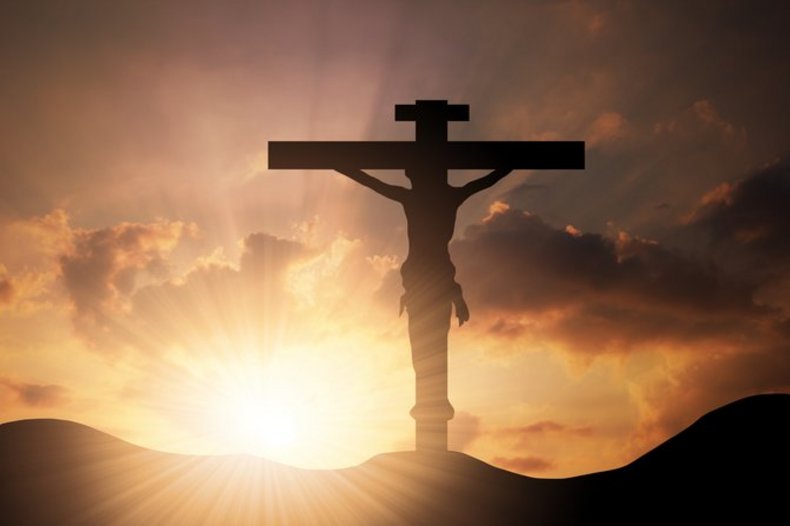
CC0 Unsplash, Soul devOcean.
Les raisons d'y croire :
- Lazarus Libermann, Samson's father, was a leading figure in the Jewish community of Alsace at the time. As his sons converted to Catholicism, the family was deeply upset. Lazarus cursed his sons and regarded them as dead to him. For Samson, choosing Christ involved a terrible sacrifice. His decision was therefore difficult and not taken lightly.
- Samson Libermann believed that the Catholic religion is the culmination of the religion of the Hebrews, revealed by God to Abraham, Moses and all the prophets of the Old Covenant. For him, therefore, there was no opposition between these two 'religions' (which would imply that one was true and the other false), but continuity: the religion of the Hebrews prepared the religion of Jesus Christ.
- In fact, Samson Libermann knew the Scriptures very well, having studied not only the Hebrew Bible but also the Greek translation of the Septuagint. He had read the commentaries on Sacred Scripture written by the Fathers of the Church. Rigorous study of all these texts led him to the conclusion that Christ had to be the Messiah promised by God to his people.
Paul-Louis-Bernard Drach, a friend of Samson's, in his First Letter from a Converted Rabbi to his Israelite brothers on the reasons for his conversion, wrote: "In a word... all the ceremonies of the one are found in the other, with the difference that the Church possesses the reality of what the Synagogue offers only in figures " (ibid., p. 12). Jesus, the announced Messiah, said it himself: "I have come to fulfil the law, not to destroy it" (Mt 5:17).
Philippe-Éphraïm Landau, in an article entitled "Conversions among Strasbourg's Jewish elite under the Restoration", considers three main reasons for the phenomenon of conversion: an intellectual quest that becomes a spiritual quest; an attraction to the dominant religion; or self-hatred. He wrote: "Several reasons contributed... to turning them away from Judaism, in particular the desire to leave a community that they considered too austere; indifference or even mistrust towards Judaic dogmas; the attraction of a society where Christianity was regaining its importance after the revolutionary years and - this seems essential to us - the convincing friendship of Drach". But one essential point is missing from this list, or rather one person: Jesus Christ.
That is why it was not to Catholicism that Samson and his brothers, that Theodore and Alphonse Ratisbonne, that Jules Lewel and others Jewish converts first turned to when they left Judaism, but to a kind of rationalism or deism. "God gave us the faculty of thought, not to let it rest, but so that we might make use of it [...]. I have based my religion on my own reason, and I do not believe I am committing a crime, even if I am mistaken in some of my maxims, as long as I do not cause harm to my neighbour." (Letter from Francis to Samson written in 1826, in Notes et Documents relatifs à la vie et à l'œuvre du vénérable Libermann, p. 52). They could have left it at that: why take the extra step of becoming Catholics?
Samson Libermann and his wife's entry into the Church was not simply the result of an intellectual evolution. It was an encounter with a living, though invisible, person, who revealed himself to them in a way that went beyond the ordinary nature of things and beings, and that alone explains why: "I was filled with faith in Christ, whose splendours I had barely glimpsed" Francis Xavier admitted in a letter from 1853 (ibid., p. 39).
- Like Paul-Louis-Bernard Drach, the example of Francis Xavier Samson Libermann and his wife was a force of evangelization and led many former co-religionists to convert.
Synthèse :
Samson Libermann was born in 1790. He was the eldest of seven children born to Eliezer, son of Samson, son of David, the rabbi of Saverne in Alsace since 1802. Following the imperial decree of 1808, which required Israelites to adopt a permanent surname, Eliezer reluctantly chose Lazard and Libermann as his surname, an old Polish name that had been borne by the family for several generations. His wife took the name Lea Haller. Their children Samson, David, Enoch and Esther kept their first names; Falik became Felix; Jekel became Jacob (the future Francis Libermann, founder of the Society of the Holy Heart of Mary); and Samuel Sannel became Nathanaël. Appointed rabbi of Saverne in 1809, Lazard Libermann would be remembered as a man who was inflexible in religious matters and, in order to defend himself and his family against - in his opinion - the impiety of non-Jews, closed to the surrounding culture. In this, he was faithful to the teachings of his Lublin teacher, Chief Rabbi Azriel Hurwitz, nicknamed "Iron Head" because of the intransigence of his principles. The teaching at Lubin's yeshiva, which was exclusively oral and in Yiddish, focused solely on the Talmud and the Kabbalah. In order not to "profane" the minds that were destined for the study of the Torah, no secular study was permitted: mathematics, history, geography, natural sciences, as well as the study of Christian languages (Polish, Russian, German, French, etc.), could in no way be considered subjects of knowledge (N. D., p. 35-36).
Jacob (the future Francis), orphaned of his mother at the age of eleven, suffered from the harshness his father had himself inherited from his own upbringing, and from two teachers at the Israelite school, to whom Lazare entrusted Francis forty-five years later, were cut from the same cloth: " [Brucken] received me with a haughtiness and arrogance that wounded me deeply and made me give up seeing him from the very first days.... [The second, Worms] took an interest in me at first, but it didn't last. I wanted to learn, so I began to study French and even Latin. It didn't take much to make me lose the good graces of my protector. The old rabbis had, out of a spirit of fanaticism, such a horror of any language other than Hebrew and feared its influence so much that my father, in particular, could write neither in German nor in French. My new teacher was from the same school, so he was very angry when he realised that I wasn't following in his footsteps. However, he did not at first reproach me openly (no doubt so as not to be accused of despising the decisions of the Consistory!), but he became full of harshness and prejudice towards me; he bullied me incessantly, and never had anything to say to me but biting words."(ibid., p. 51). Francis thus tells us about a situation that all his brothers had to go through, and which inspired in them a deep aversion to theTalmud.
At the age of eighteen, once he had finished preparatory school under his father's guardianship, Samson left for Mainz to begin advanced Talmudic studies. It should be pointed out that alongside traditional Talmudic teaching, a new way of seeing things had emerged, one that accommodated the prescriptions demanded by Napoleon and was intended to be liberal, i.e. open to the modern world. Samson embraced it, as did Jacob (Francis), following his example. In Mainz, Samson abandoned the Talmud to study French, Latin, Ancient Greek and English (ibid., p. 36). Long before my conversion," he reports, "the subtleties and absurdities of the Talmud had inspired such disgust in me that I felt deeply humiliated to be occupied with such insipid things." (N. D., p. 38). At the time, he was also reading the works of Voltaire and Rousseau: bad readings, as he would say himself later, which forged in him a kind of sentimental religion "that imposed very few obligations and was very unobtrusive" (ibid.). When typhus ravaged the city in 1813 during the rout of the great army, Samson devoted himself to the sick as a health officer. It was then that he realised the task to which he should dedicate his life. After passing his baccalaureate on his own - a complex and difficult examination at the time - he became an intern at the hospital in Strasbourg. At the age of thirty, in 1820, having defended his dissertation, he opened his own practice in this city, within the Jewish community. For some time, in agreement with Israelite intellectuals, he thought he would work to free the religion of Moses from rabbinical precepts and restore it to its original purity: the spirit of adoration, gratitude, love and trust that animates it. For him, rabbinism confuses content and form, and proclaims that the latter takes the place of the former. "Rabbinic worship," he writes, "is so vicious that it degrades the heart and mind of man by presenting the divinity as a capricious being who delights only in the playacting of his servants." (ibid., p. 44). Later, he would understand that Jesus Christ had accomplished this task, and that it was still he who could carry it out in the hearts of the Jews in the middle of the twentieth century (ibid., p. 45) by removing "the blindfold from their eyes" (ibid., p. 43).
After six years of engagement, because his future wife's family demanded that he first obtain his diploma and secure a sufficient clientele, Samson married Antoinette Meylert , who shared her husband's religious views, in 1821. In 1826, Jacob (the future Francis) visited his brother, who was a doctor and mayor of Illkirch at the time. Samson gave him a letter of recommendation for David Drach, one of his childhood friends, who was well versed in biblical languages and who, having started out as a rabbi, had converted to Catholicism and been baptised in 1823. Drach's scientific knowledge had a major influence on Jacob. One day in November, Jacob, who was still Jewish - at least nominally - fell to his knees under the influence of grace, asking God for light, and got up a Christian (ibid., pp. 34, 65-66 and 100-102). Paul Louis Bernard Drach was also the instrument God chose to admit three other Libermann brothers into his Church: David, baptised Christopher; Felkel, baptised Felix; and Samuel, baptised Alphonse (ibid., p. 23-30). All six brothers converted to Catholicism, with the possible exception of Enoch, about whom almost nothing is known. During this visit, Jacob presented Samson with several objections to the faith. In particular, he rejected the miracles reported in the Pentateuch. "Why don't we see any today?" he argued. "Because they are no longer necessary since the advent of Jesus Christ," replied his elder brother. "The purpose of miracles was to prepare people's hearts for the coming of the Messiah." (ibid., p. 62).
After reading a Gospel lent to them by their Lutheran neighbours, Samson and his wife became enthusiastic about the doctrine of Christ, which they often discussed among themselves. Together, without waiting for their own conversion, they decided to have their daughter Elizabeth baptised. Disappointed by the President of the Augsburg Confession, who told him that baptism was not that important (ibid., p. 38-39), Samson visited Canon Leopold Liebermann, Vicar General of Strasbourg, who recommended that he read the works of French bishop and theologian Jacques-Benigne Bossuet, which he in turn recommended to his brother Jacob (ibid., p. 52). The Libermann couple were baptised on 15 March 1824 (ibid., p. 95). Samson chose the name Francis Xavier. Four daughters, Pauline, Caroline, Marie and Theodora, followed, and became nuns at the Convent of the Sacred Hearts in Louvencourt, Amiens, with the exception of Marie, who died at the age of thirty. They also had three sons: Francis-Xavier, who became a Spiritan; Henri, who became a military doctor; and Leo, a flag officer. Throughout their lives, Francis Xavier's children showed the same charity as their father, who had set an example: he oversaw their religious instruction with care, quizzing them on the catechism and choosing their reading material. When they reached the age of two, he taught them the Our Father and the Angelic Salutation (ibid., p. 23). The rosary was recited as a family on Saturdays, in honour of the Blessed Virgin.
Francis Xavier Libermann was remembered as a doctor who was learned in German and French literature, diligent in staying at the top of his profession to benefit his patients, and conscientious. His children testified to his spirit of mortification. He was known for his profound charity. In Strasbourg, he became president of the Society of Saint-Vincent de Paul and cared for the clergy of the city's various communities. He also nursed his brother Francis through his final illness.
Francis Xavier died on 14 January 1860 and was buried in the cemetery of the Saint-Esprit community in Langonnet by the religious order and his own sons.
Fr. Vincent-Marie Thomas, Ph. D. in philosophy.
Au-delà des raisons d'y croire :
On the conversion of his brother Francis, Samson wrote: "The Lord having done me the grace, in spite of my unworthiness, to call me the first of my family to his Church, the ascendancy which I had always exercised over him was, I have no doubt, one of the principal means which the Lord used to call him back to Himself" (ibid., p. 51). We know that this judgement was ratified by Francis himself in a letter of 1826: "My dear brother... it seems that you had doubted my friendship since your change of religion. Even if I were the greatest zealot in the synagogue, I would never cease to have for my brothers that sincere attachment which, nurtured in me from my earliest childhood, has always been my delight and happiness " (ibid., p. 52).
In view of the height of holiness to which grace raised the venerable Francis (a holiness which is only the culmination of union with God already prefigured in the precepts of Moses lived interiorly on a daily basis) we can presume the natural and supernatural virtues of his elder brother.
Aller plus loin :
Notes et documents relatifs à la vie et à l'œuvre du vénérable Libermann, t. 1 (of 13) covering the years 1802-1826, Paris, 1927, 713 pages. There are many letters from Francis Xavier (Samson) Libermann about his brother Francis, in which the author also describes his own feelings before and at the time of his personal conversion. A written portrait of Francis Xavier, by Mother Marie-Thérèse of Jesus, sister of Francis Xavier and Francis, a nun of the Sacred Hearts of Louvencourt, can be found on pp. 22-23. Available online.
En savoir plus :- David Paul Louis Bernard Drach:
- Lettre d'un rabbin converti aux israélites ses frères, Paris, Beaucé-Rusand/Belin-Mandar, 1825. Available online.
- Second letter from a converted rabbi to his Israelite brothers on the reasons for his conversion. Les prophéties expliquées par les traditions de la Synagogue, Paris, 1827. Available online.
- Third letter from a converted rabbi to his Israelite brothers on the reasons for his conversion. Prophétie d'Isaïe VII, 14 expliquée par les traditions de la Synagogue,Rome/Paris, 1833. Available online.
- De l'harmonie entre l'Église et la Synagogue, ou perpétuité et catholicité de la religion chrétienne, Paris, Paul Mellier, 1844, 2 vols. 576 and 496 p. respectively.
- Mgr Jean Gay, Libermann, juif selon l'Évangile (1802-1852), Paris, Beauchesne, 1977. This work is a biography of Blessed François Libermann, but pages 11 to 61 deal with his family background, the knight Drach and his brother Samson.
- Philippe-Efraïm Landau:
- "Se convertir à Paris au XIXe siècle", in Archives juives. Revue d'histoire des Juifs de France, Paris, Les Belles Lettres,no 35/1, 2002, p. 27-43. Available online.
- "Les conversions dans l'élite juive strasbourgeoise sous la Restauration", ibid, no. 40/1, 2007, pp. 131-139. Available online.
- "Les Libermann de Saverne", in theKKL Almanach, Strasbourg, 2003,no. 5763. Available online.
- Jean Letourneur, "Le Rabbin Lazard Libermann", in Bulletin trimestriel de la Société d'histoire et d'archéologie de Saverne et des environs, cahiers 49-50, 1965, p. 9-15. Available online.
- A. Limbour, Le R. P. François-Xavier Libermann. This was the first son of François-Xavier (Samson) Libermann, who became a Spiritan. Available on line.
- Lettre d'un rabbin converti aux israélites ses frères, Paris, Beaucé-Rusand/Belin-Mandar, 1825. Available online.
- Second letter from a converted rabbi to his Israelite brothers on the reasons for his conversion. Les prophéties expliquées par les traditions de la Synagogue, Paris, 1827. Available online.
- Third letter from a converted rabbi to his Israelite brothers on the reasons for his conversion. Prophétie d'Isaïe VII, 14 expliquée par les traditions de la Synagogue,Rome/Paris, 1833. Available online.
- De l'harmonie entre l'Église et la Synagogue, ou perpétuité et catholicité de la religion chrétienne, Paris, Paul Mellier, 1844, 2 vols. 576 and 496 p. respectively.
- "Se convertir à Paris au XIXe siècle", in Archives juives. Revue d'histoire des Juifs de France, Paris, Les Belles Lettres,no 35/1, 2002, p. 27-43. Available online.
- "Les conversions dans l'élite juive strasbourgeoise sous la Restauration", ibid, no. 40/1, 2007, pp. 131-139. Available online.
- "Les Libermann de Saverne", in theKKL Almanach, Strasbourg, 2003,no. 5763. Available online.


